Fellow members of the keto community, keto dieters everywhere, we need to talk. I want…
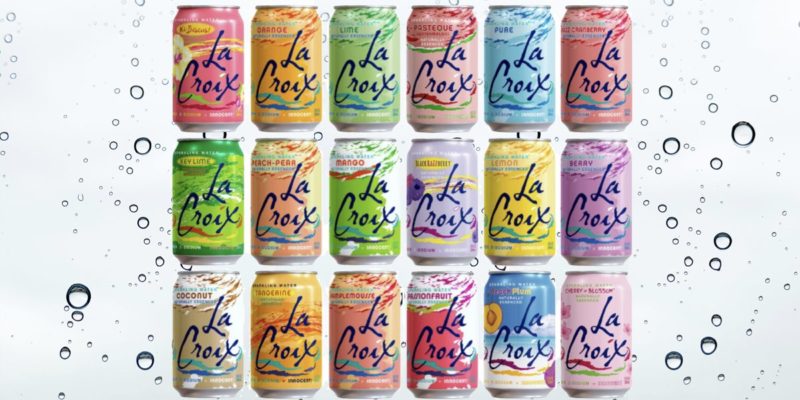
The Truth About Natural Flavors In Sparkling Water
Table of Contents
- How much do you know about the natural flavors in your sparkling water?
- My naturally flavored sparkling water gave me some negative side effects.
- La Croix sparkling water with natural flavors contains at least four kinds of chemicals
- We should know what Natural Flavors we’re drinking so we can understand how they might affect our health.
- You would know all about “natural flavors” if you lived in Mexico.
- In case you missed it, social media color commentary ran the gamut.
- So Is linalool really a roach killer?
- Why are all those chemicals added to sparkling water?
- Can anything be a “Flavoring With Modifying Property?”
- What does an FMP modify?
- What the La Croix lawsuit plaintiff lawyers got wrong about the natural flavor issue.
- Linalool kills roaches, and that matters to us, too.
- What does adding linalool to sparkling water do for the flavor?
- Linalool should be considered a drug, not a flavoring.
- Should you categorically avoid La Croix and anything with “natural flavors”?
- Can drinking sparkling water with linalool be habit-forming?
How much do you know about the natural flavors in your sparkling water?
After feeling weird drinking sparkling water, a thought popped into my head. A wide range of naturally derived substances with drug-like effects are natural products, might that be what’s making me feel drugged? Are there regulations limiting what natural products can be added to our food and drink? How can you find out what’s actually in the naturally flavored products you buy?
This article will cover what I discovered about the new leeway the natural flavor industry has to add drug-like compounds to our drinks. I’ll focus on a natural flavor called linalool.
My next article will cover new leeway given to the natural flavor and beverage industries to add stevia to supposedly unsweetened sparkling waters, including Waterloo. You don’t want to miss it. Be sure to subscribe to my newsletter so you can be the first to know!
This article is continued below...(scroll down)
My naturally flavored sparkling water gave me some negative side effects.
I’d been getting headaches after drinking my afternoon pick me up–a refreshing cocktail made with LaCroix flavored sparkling water and black tea. I thought it was from caffeine, so cut out the tea the next day. Then I noticed something weird: I still felt funny drinking just the flavored water. Hard to describe; like jittery but still calm, and I noticed myself talking ridiculously fast as if I’d OD’d on caffeine.
When it dawned on me that I didn’t really know what could or could not be considered “natural flavors” in the sparkling waters I’d been drinking, I started digging.
But I got nowhere until I ran into a 2018 article about LaCroix being sued over a substance called linalool.
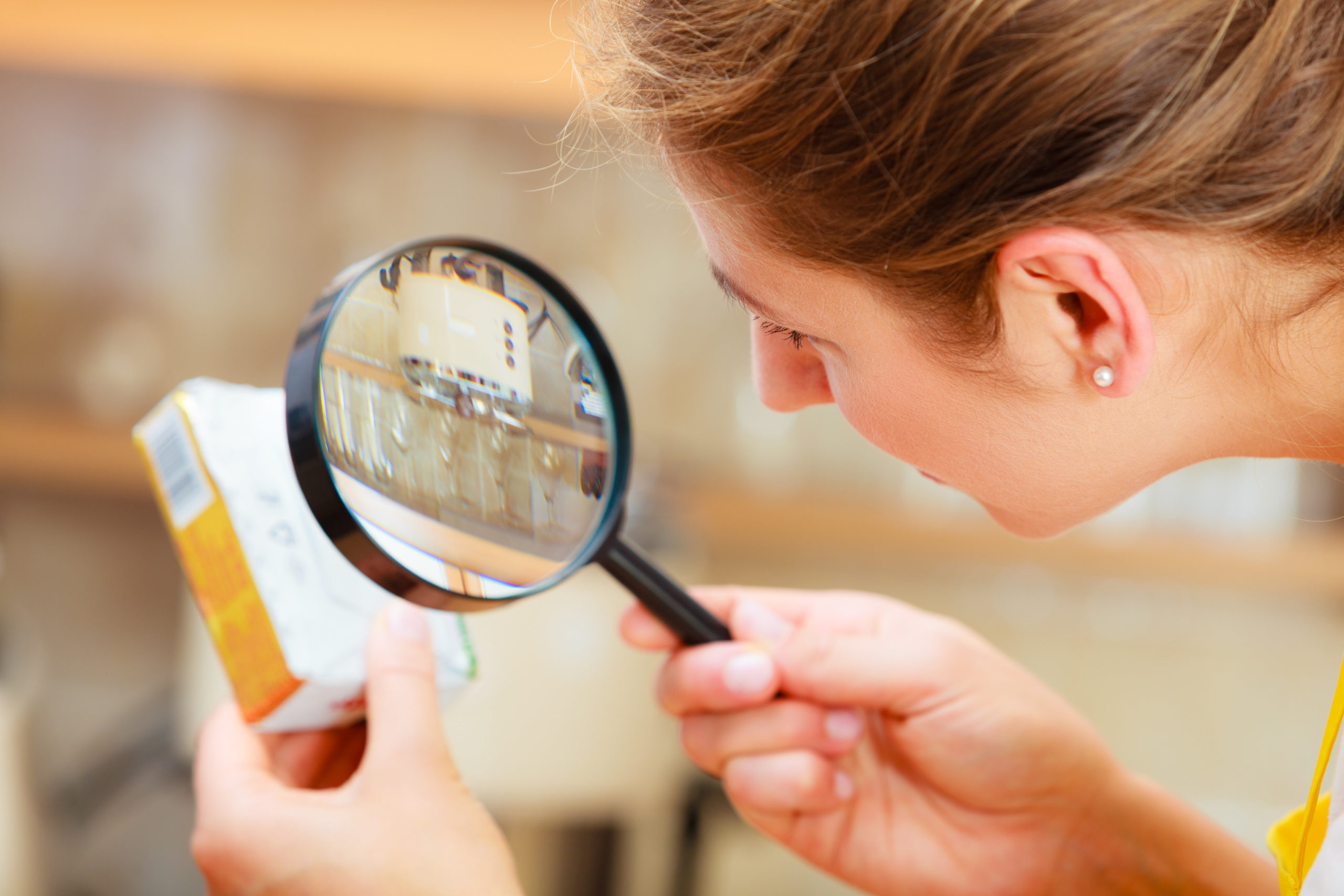
La Croix sparkling water with natural flavors contains at least four kinds of chemicals
In 2018 undisclosed plaintiffs filed a class action lawsuit against LaCroix’s parent company National Beverage Corp for including “non-natural flavorings and synthetic compounds.”
At first, LaCroix denied they even used linalool.
LaCroix lawsuit: Sparkling water company denies its uses cockroach insecticide ingredient
Later, after filing details were made public, LaCroix could no longer deny it. It turned out that yes La Croix contained all those chemicals, but the plaintiff could not prove the compounds were synthetic, which is hard to do. And since that’s what the suit was filed about, the team got the boot.
LaCroix never apologized for the outright lie. After all, they wouldn’t want to remind us and most people probably had forgotten. Instead, they confidently asserted that there’s nothing to worry about because the source of all their chemicals is natural.
We should know what Natural Flavors we’re drinking so we can understand how they might affect our health.
Natural or not, I think we should be told these chemicals are in there. I mean if they’re so safe and healthy, then why does the company need to keep them secret? We shouldn’t have to wait for someone to file a lawsuit in order to find out what’s in the water we’re drinking.
You would know all about “natural flavors” if you lived in Mexico.
I called a connection of mine at the beverage company that does business throughout all of Latin America to compare what we can get away with in this country versus the Spanish-speaking
business world. He was surprised. He told me if his company adds orange flavor, they can’t just say natural flavor. They need to s specify “natural orange flavor.” He also said they could not add any chemicals, natural or not, without so stating.
Apparently, these days, the powers that be in Central and South America are able to protect their consumers better than in the USA.
The 2018 lawsuit filing generated reactions in our social media world that span the spectrum in an interesting way:
Grief and loss, from fans of flavored sparkling water
This is why we can’t have nice things
Humor, from the comedians
ur telling me I can kill cockroaches w la croix
Sciencey facts, from the helpful experts
a terpene alcohol naturally found in plants
And from the conspiracy theorists, whatever this means
So Is linalool really a roach killer?
Right after the filing, the food industry was quick to point out that just because linalool is added to roach killer does not mean it is the active ingredient. A smart move, on their part. I found a few articles implying that linalool is added purely for its pleasant odor. “And just like humans, they are going to be attracted to (and repelled by) certain tastes and smells.” (Source)
Helping to quiet the issue, others echoed the food industry responses: “While, yes, linalool is added to some pesticides, implying that linalool is insecticide is like saying orange juice is a just as dangerous as drinking paint remover because paint remover contains citric acid.” (source)
So if you stop there, you’ll think that it’s all a bunch of nothing.
I didn’t want to stop there.
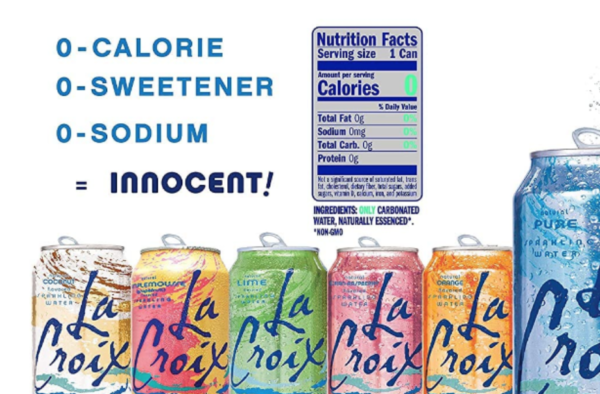
Why are all those chemicals added to sparkling water?
You can’t get flavored sparkling water without adding flavors. But what I wanted to know was whether all of those chemicals were added purely for flavor. Just because linalool has a flavor, doesn’t negate the possibility that there may be other effects.
I soon discovered an industry website advertising its flavorings and related products. On this site, I learned that the term “natural flavors” also includes another category called Flavorings With Modifying Properties, or FMPs. These compounds have “sensory enhancing” effects. That’s starting to sound like something you’d hear at a mod LA party in the 1960s.
According to the industry website explaining “why FMPs make sense,” there are multiple reasons to use their “flavor modifying property” chemicals. First, they “fall under a natural flavor declaration,” meaning you don’t have to disclose them. Second, they can “magnify saltiness while reducing sodium,” which helps explain what the term flavor-modifying properties actually means. And third, they have “broad regulatory clearance.”
“Broad regulatory clearance” sounds like doublespeak for something potentially important.
So I dug into that a bit.
Can anything be a “Flavoring With Modifying Property?”
it looks like the sky’s the limit, here.
I found a long article describing the process of how to comply with the Sensory testing of flavorings with modifying properties within the FEMA GRAS(TM) program. In other words, if you have a mind-altering chemical that you want to be labeled as a natural flavor, you can. Follow the right set of rules, and you can call it an FMP. There’s a company that worked out the process for navigating loopholes to get your substance approved.
The trademarked protocol they’ve devised is called:
“Sensory Testing for Flavorings with Modifying Properties”
I read the lengthy document. It looks like the first thing you need in order to get whatever compound you want successfully deemed an FMP is a bunch of money–the process is complex and involved. Then you gather up 10-30 people and train them to taste the compound you want to get clearance to use under the FMP law.
“The FEMA GRAS applicant is free to choose naïve, screened, or trained panelists.”
You can train your panelist, and you can pay them. What for? You need to train them so that they help you get through the loophole. You need to claim that your product does not taste saltier or sweeter than a control solution with a defined concentration of salt, and another solution with a defined concentration of sweetener. They need to confirm your claim. As long as your paid taste-testing panel says the right things, you’re set. Then boom. You’ve got your FMP accreditation and FDA clearance to use this chemical or that chemical without having to put it on the label.
What does an FMP modify?
I think it’s us.
I read through this FMP approval protocol process and I think they’re not so much interested in secretly adding sugar or salt. They’re looking for ingredients they can use for impact boosting on more expensive ingredients, like Stevia, which is costly. I bet you a dollar they’re also looking for addictiveness. After all, if you’ve got something to sell, it’s always a bonus if you can get people hooked.
This takes us back to the lawsuit, and the complaint that La Croix added ingredients for effects that go beyond flavoring.
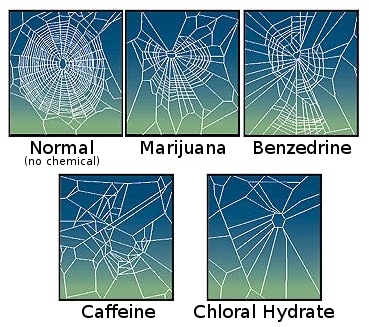
What the La Croix lawsuit plaintiff lawyers got wrong about the natural flavor issue.
Linalool may also exist in nice-sounding things like basil and lavender, but in relatively low concentrations. To really get a good wallop of linalool you have to reach for a roach of a different kind; weed or CBD oil. Most naturally derived linalool today seems to be derived from the marijuana plant. For that reason alone, it should raise alarms that it may have drug-like effects.
According to numerous research reports, linalool, like the CBD oil it’s derived from, powerfully affects the human nervous system.
Linalool kills roaches, and that matters to us, too.
It turns out that linalool is an active ingredient in roach killer, not just a scent.
Just as an FYI, pesticides, including compounds that kill roaches, usually do so by causing paralysis and slow suffocation, or hyperactivity and discoordinated moments that make bugs walk in circles or twitch aimlessly until they wear themselves out. Either way, the effects can be lethal. Linalool paralyzes insect species by inhibiting the effects of a neurotransmitter called acetylcholine.
Even though we’re much bigger than roaches, and some of us are smarter, our nervous system uses the same chemicals as neurotransmitters. This includes acetylcholine, too. In other words, there’s a good chance compounds that paralyze insects can affect our nervous system in a perceptible way even in very small doses.
Now that we’re drinking an active ingredient in roach killer, I think it’s important to know a little bit about it, don’t you?
What does adding linalool to sparkling water do for the flavor?
Flavorwise, it’s a “light, citrus-like flavor, sweet with a spicy tropical accent” flavor that’s detectible at a very low threshold, of 3.2 parts per billion. Compare that to ammonia, with a detection threshold between 5 and 50 parts per million (1,000 times higher). That’s pretty potent and anything that powerful raises red flags for me.
Linalool should be considered a drug, not a flavoring.
Something with this extreme potency triggers a red flag for concern that it may have the ability to act as a neurotransmitter. Indeed, as I’ve mentioned, that’s how it kills roaches.
Linalool should be considered a drug because it is a partial antagonist at NMDA receptors in the human brain. Linalool partially blocks certain chemicals our brains use to process information, thus potentially altering sensory input, mood, and thinking processes.
Indeed, linalool has been studied for use in treating bipolar disorder, anxiety, and depression. Extensively studied. Notably, the doses found to have psychological effects are really small, about 2-3 milligrams for an adult human. This gives it a potency comparable to valium.
Instead of going after claims of natural versus synthetic, a strategy that would better protect consumers would have been to go after them for the fact that their product contains ingredients with known mind-altering effects. Including addiction.
Should you categorically avoid La Croix and anything with “natural flavors”?
Not necessarily.
First of all, there are so many compounds used, and some of them are probably totally fine. So I can’t possibly give a blanket recommendation for all “natural flavors.” Besides, one person’s metabolism may break down something like linalool before much of it even enters our circulation, while another person’s may not. Therefore, some people have zero issues with a given substance, while others may notice weird symptoms. Further variability comes from whether we’re drinking our sparkling water on an empty stomach or with food. So there are lots of conditions to factor in.
I would say that if you notice some kind of side effect from drinking anything with “natural flavors” try a different flavor and or a different brand. But also do pay attention to whether you’re having it with food or not. I would think the empty stomach scenario would open us up to more side effects.
Can drinking sparkling water with linalool be habit-forming?
Potentially yes.
Let’s get back to how linalool affects those NMDA receptors. To understand what it might do to a person consuming linalool, I looked for other drugs that work the same way. Are you ready for things to get really fun, like 1960s groovy LA party fun?
It turns out that drugs that work the exact same way as linalool include the recreational drugs Ritalin, Ketamine, and Phencyclidine. In other words, depending on how your brain responds to it, La Croix water may help you break the ice at parties, relax during exams, or concentrate better during your studies. Just like methamphetamines. It’s got so many uses!
Or, you could consider La Croix as a legal, cheap, liquid form of Ritalin.
No wonder so many people are hooked on these new flavored sparkling waters!
I’ll stick to my boring old Pelligrino sparkling mineral water. Thank you very much.
Please note: Please do not share personal medical information in a comment on our posts. It will be deleted due to HIPAA regulations.
This Post Has 15 Comments
Note: Please do not share personal information with a medical question in our comment section. Comments containing this content will be deleted due to HIPAA regulations.
















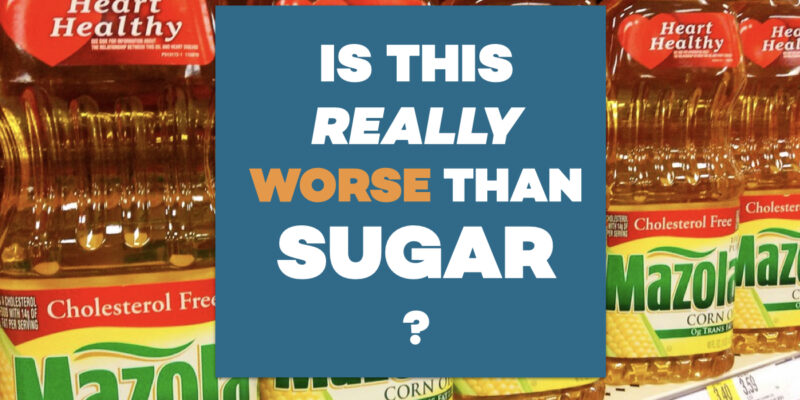


Hi Dr. Cate,
I found you via Vinnie Tortorich. I have a friend that seems to be truly addicted to LaCroix. Now I know why! I have drank my share as well, but no more! My advice is to get a Soda Stream and put a few drops of juice from a real lemon (or lime, grapefruit, etc.). True natural flavors.
Mark
How about Nixie Sparkling water? They have Organic Flavors listed but i think it’s just fruits? Not sure though
Until we get label transparency truly there’s no way to know without a lawsuit. The best test you can do is try it a few times on an empty stomach and if you start to feel weird there may very well be something with a drug-like effect in there.
Here’s their answer:
Hi Rina!
Thank you for taking the time to reach out! Our organic flavors are extracted from the named fruits and botanicals and are the essences and aromatics of these plants versus the juice. Organic flavors follow the same strict processing and auditing rules as all organic ingredients and can’t contain synthetic solvents like propylene glycol, BHA/BHT, polysorbate 80, hexane or sodium benzoate that can exist in conventional flavors. We also purify our water using reverse osmosis filtration which removes fluoride, sodium, and other impurities, and test for PFAs. Hope this helps and please let me know if you have any additional questions!
Wonderful thank you for sharing so…if linalool were organically sourced they could add it, it seems. Is that what you got out of it?
omigosh, perfect timing! Thank you so very much for your fantastic in depth reviews. Natural Flavors are not allowed in Closest To Homemade products and you’ve really reinforced that decision and expanded our knowledge as always.
Thank you sincerely, Dr. Cate
I enjoyed reading your article about La Croix sparkling water in which you discussed linalool, a roach killer and acetylcholinesterase inhibitor. I just wanted to point out that “nerve gas” uses a similar mechanism to kill humans. Thanks for your life-changing work!
Terrifying. It’s a wake up call that reminds us ‘natural’ is not the same as healthy.
I’m sure I’m not alone in giving my toddler some flavored sparkling water now and then, thinking it was safe. Will be switching to Spindrift and taking a closer look from now on!
Immediately after reading this article saw an ad for flavored alcoholic beverages. And now I ask, how many of these “new fangled” drinks have flavor additives that increase alcohol addiction?
Spindrift does not contain anything fishy. If you find flavored sparkling waters with no “Natural flavors” please share the brand in a comment.
Hi Dr Cate,
Interesting article. Thanks for sharing your research. I visited your list of recommended products, you should update it as La Croix is currently on the list. I’ve recently started drinking La Croix and will switch based on your findings.
Thanks for pointing that out. I’ll add a link to this article.
Organic Sound Beverages are Flavored Sparkling Waters which do not contain any Natural Flavors or Added Sugar. They are flavored with real tea plus fruit, spice and botanical extracts. For those that do contain Citric Acid, it is naturally derived from Organic Citrus Fruit. Due to the addition of Tea as an ingredient, some of the offerings contain Caffeine while others are Caffeine Free with an Herbal Tea included.
https://drinksound.com
Fantastic thank you!